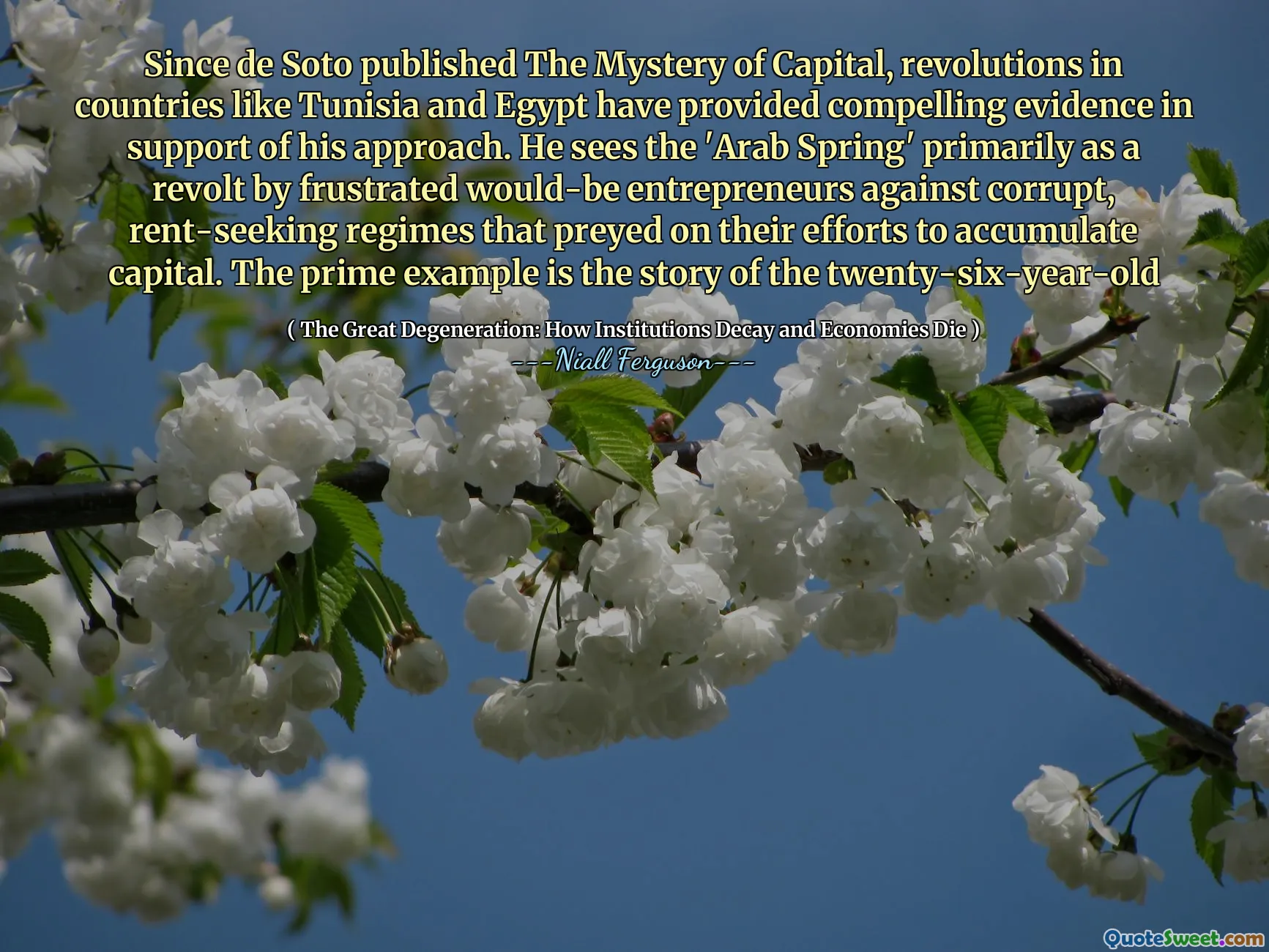
Since de Soto published The Mystery of Capital, revolutions in countries like Tunisia and Egypt have provided compelling evidence in support of his approach. He sees the 'Arab Spring' primarily as a revolt by frustrated would-be entrepreneurs against corrupt, rent-seeking regimes that preyed on their efforts to accumulate capital. The prime example is the story of the twenty-six-year-old
Since the release of "The Mystery of Capital" by Hernando de Soto, significant events like the uprisings in Tunisia and Egypt have reinforced his theories. De Soto interprets the 'Arab Spring' as an uprising fueled by aspiring entrepreneurs who were frustrated by corrupt governments that exploited their attempts to build wealth. This perspective highlights the struggle against systems that impede economic growth and personal initiative.
Niall Ferguson, in his book "The Great Degeneration: How Institutions Decay and Economies Die," provides further insight into this topic. He discusses how institutional decay can lead to economic decline, underscoring the importance of strong, functional institutions that support entrepreneurship and capital accumulation. Ferguson's analysis aligns with de Soto's view, suggesting that without the right systems in place, societies may suffer significant economic setbacks.











